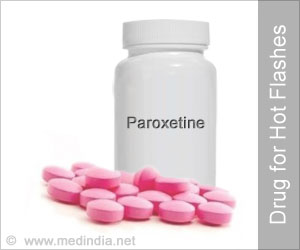A commonly prescribed antidepressant, paroxetine, could possibly help in restoring heart failure, reveals a new research. Paroxetine has shown to inhibit a specific enzyme.

Walter J. Koch, lead researcher said that their findings showed that physicians could prescribe this antidepressant to their patients who suffer from clinical depression, so that it also improves their heart function.
The team of researchers mentioned that when the heart muscle was damaged by a heart attack, the body attempts to compensate for its lost pumping power by increasing adrenaline levels to boost heart rate, and leads to a series of maladaptive adjustments, and the heart grows larger and less efficient as its contractile force weakens.
The study showed that during a heart attack, portions of the heart muscle deprived of oxygen by the blockage to cardiac circulation die, and GRK2 (G protein-coupled Receptor Kinase-2) actually induces even more cells to die, leading to patches of scar tissue that are unable to contract, to the weakening and thinning of the heart tissue and dilation of the heart.
Koch concluded that their research has validated that GRK2 was a viable therapeutic target for heart failure and paroxetine was the starting point for a novel small molecule.
The research is published in the journal Science Translational Medicine.
 MEDINDIA
MEDINDIA




 Email
Email










